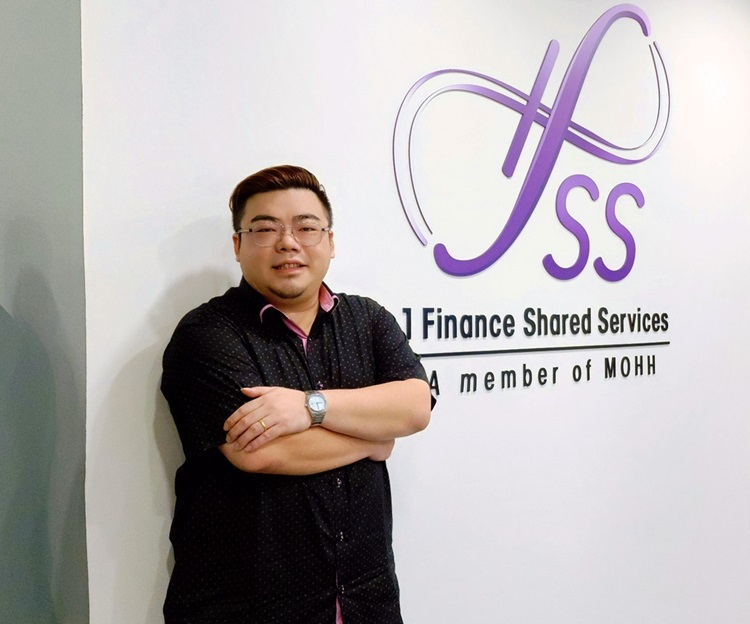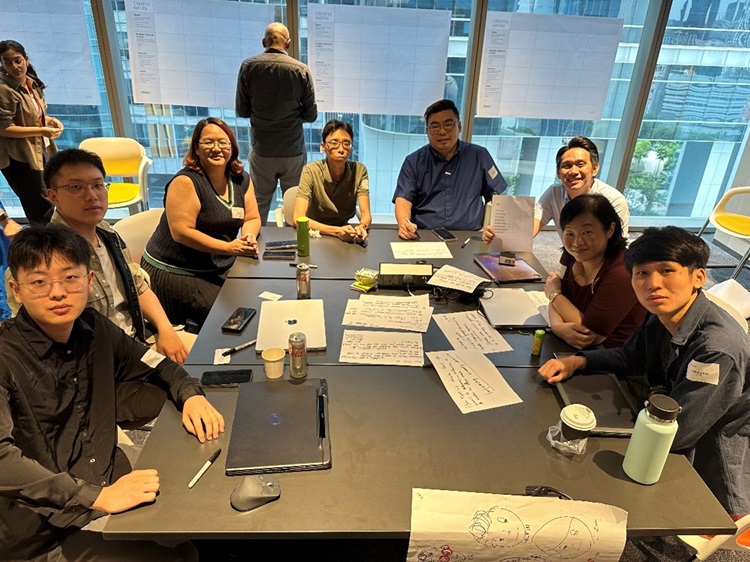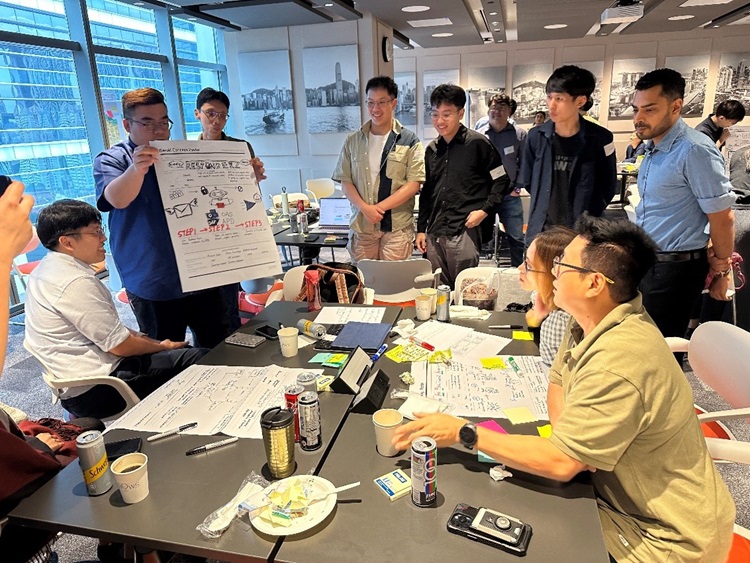
Johnny Chiang, 1FSS Health Finance Executive and participant at Synapxe’s GenAIus Challenge. (Photo credit: Maybeth Cheong, 1FSS)
GenAIus Challenge workshops empower healthcare professionals to create innovative Generative AI (GenAI) solutions to solve daily work challenges and ultimately enhance the patient journey.
As part of a call-for-innovation programme, these ideation workshops welcome both clinical and non-clinical submissions, where shortlisted use cases could lead to the development of real-world solutions for public healthcare institutions (PHIs) and their backend offices.
Johnny Chiang, a Senior Finance Executive at 1FSS, recently participated in a workshop and shared his experience exploring non-clinical use cases for GenAI to impact public healthcare’s finance shared service operations.

Johnny Chiang, 1FSS Health Finance Executive and colleagues at Synapxe GenAIus Challenge workshop.
What use case did your team explore?
At 1FSS, part of our role is to handle bill requests for Singapore’s public healthcare institutions. When a patient has visited a healthcare institution and a service has been provided, a bill would be triggered and 1FSS’s role is to ensure that the payment has been received. 1FSS also receives many enquiries from patients on payment matters. These enquiries are via emails or phone calls and they can be as simple as how or where to make payment. More complex enquires include how to tap on their MediShield insurance or how to request for MediFund support.
One use case that we explored was to handle email enquiries. We would like a GenAI tool to scan our emails, read and analyse the enquiries, generate responses and be able to respond to patients automatically. If GenAI is unable to generate a response, the solution would be to suggest where to redirect the enquiry to. For example, a patient might have requested for a hospital discharge summary from the healthcare institution’s Medical Records Office (MRO). The envisaged GenAI tool would then suggest that this email be routed to a MRO for further action.
How would the use of GenAI in healthcare benefit the public?
The potential benefit of the use of GenAI is to achieve faster turnaround time when handling the patient enquiries. When patients’ enquiries are addressed faster, patient satisfaction will be higher, and it enhances the overall patient experience.
Benefits to you and your team?
With GenAI, we could potentially automate the more straightforward enquiries, reduce manpower required to manage this function and redeploy the manpower to perform other more value-adding work.

